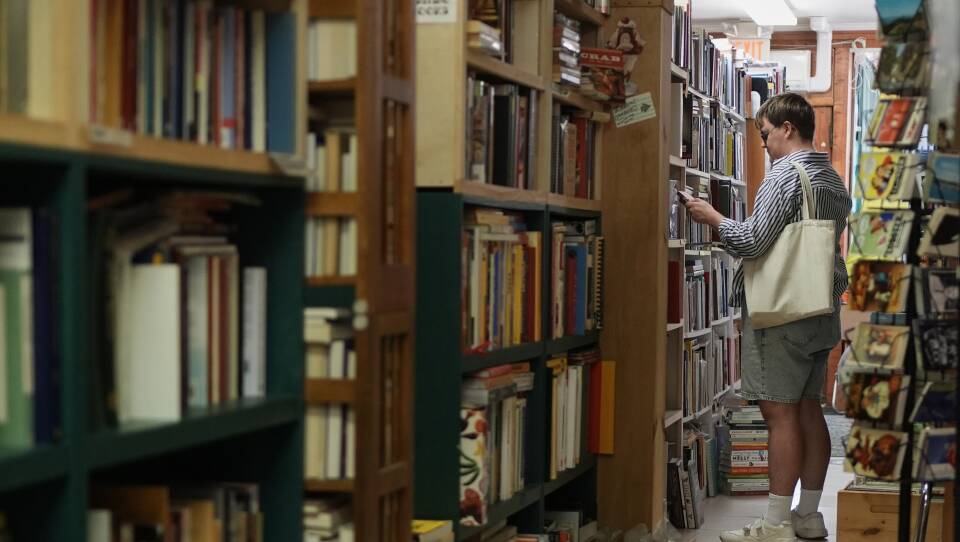A recent study has found a sharp decline in the number of Americans who choose to read for fun.
The national report published last month in the journal iScience found that people reading for pleasure has had an over 40% drop over the last 20 years — even including e-books and audiobooks.
GBH’s Morning Edition spoke with Boston Public Library Collection Development Manager Julie Roach about the trend, and why it’s important to reverse it. What follows is a lightly edited transcript.
Mark Herz: So this study with a big drop in reading for fun ... what’s your experience on the ground at the Boston Public Library? Is it in line with that or are you seeing something different?
Julie Roach: Well, I see sort of a different facet of society at the library, right? The people who are coming in are interested in books by some degree. So I do see people who are reading, and reading for pleasure. I’m not exactly surprised by the study.
I know what happened to me in [the 2000s]: I got an iPhone. The phone is created to pull our attention in a thousand different ways every 10 seconds. So perhaps our attention spans are being pulled all over the place, and listening to something for a period of time, reading something for a period time, means putting all that to the side and concentrating.
Herz: I wanted to dig into one other thing in this study that I think you might be able to give us some perspective on, and that’s that people with lower income or educational levels showed the steepest decline in reading for fun. What do you make of that?
Roach: It is very disheartening to think only one facet of society is really taking advantage of [the] benefits that reading can bring to you. A whole part of [the library’s] reason for being is about trying to counteract that, but it is a trend we’re seeing, and I’m sorry to see it.
The other trend that was on that study that I was really sorry to see was, [more than] 20% of the people surveyed had kids under nine years old, but only 2% of people surveyed were reading with those kids. And that is perhaps the most discouraging thing, because that is a cycle that we don’t want to perpetuate that could only make the situation worse.
Herz: Why is it important for parents to be reading to kids?
Roach: I think it’s important for parents to be reading to their kids because it makes it a pleasurable experience. It’s something that you look back on and you have these fond memories about reading, and it helps sustain that as maybe reading becomes more challenging, or more academic growing up in school. You still remember it as a pleasurable experience when you were little. It’s bonding between parents and kids — it’s sort of getting the feel for talking about a piece of literature and how your own personal experience sort of relates to that piece of literature. It’s a really formative experience and it’s really important.
Another important thing is for kids to see their parents reading for pleasure or their grownups at home reading for pleasure, right? That’s sort of like, “Oh, this is a thing that we do in my family for fun.”
Herz: Tell us more about how reading benefits adults.
Roach: So when we read, we learn to build empathy. It’s kind of magic what happens actually. An author writes something, we read these sort of marks on a page, and we manage to make meaning of them and we find connection with this person who wrote this that we don’t even know. And it allows us to sort of make connections, like, “Oh, that’s like what I think” or, “That’s not what I think at all. That’s such an interesting way to think.” So it allows us to build empathy. And I think in this world we’re living in right now, empathy is so crucial for us to move forward.
[Reading] supports mental health. It allows us relax. It allows to escape. It allows us to process things that are going on. [It has] so many benefits and it allows us to slow down. And the world is going so fast around us — to sort of take half an hour, read something, slow down, think about what it means for me, what it mean for others — can be so powerful and restorative.






